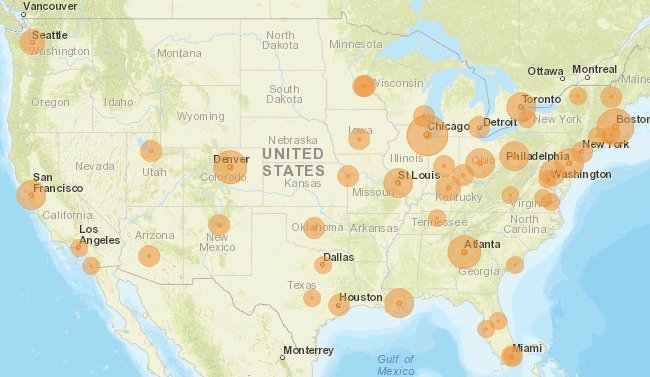Denver, CO
-
Thursday, November 12, 2009
-
Retirement Income, IRA Withdrawals and Income Mobility: Three Papers Using Tax Return Panel Data
- David Splinter, Victoria Bryant, and John Diamond, Income Volatility and Mobility: U.S. Income Tax Data, 1999-2007
-
Value Added Tax: Fiscal and Practical Potential
- Charles E. McLure, Jr., Implementing State and Local Sales Taxes in the Context of a Federal Value Added Tax
- Janjala Chirakijja, Thomas F. Crossley, Melanie Lührmann, and Cormac O’Dea, The Stimulus Effect of the 2008 U.K. Temporary VAT Cut
-
International Tax Policy
- Roy Clemons and Michael R. Kinney, The Lock-out Effect of the U.S. Worldwide Tax System: An Evaluation Around the Repatriation Tax Holiday of the American Jobs Creation Act of 2004
-
Using Tax Return Information to Better Understand Business Taxation
- Nicholas Bull, Susan Nelson, and Robin Fisher, Characteristics of Business Ownership: Overview for Pass-through Entities and Evidence on S Corporate Ownership from Linked Data
- George Contos, John Guyton, Patrick Langetieg, and and Susan Nelson, Taxpayer Compliance Costs for Small Businesses: Evidence from Corporations, Partnerships, and Sole Proprietorships
- George A. Plesko and David P.Weber, The Time-series Properties of Book and Taxable Income
- Edmund Outslay, Comments on “Characteristics of Business Ownership: Overview for Pass-through Entities and Evidence on S Corporate Ownership from Linked Data,” Nicholas Bull, Susan Nelson, and Robin Fisher; “Taxpayer Compliance Costs for Small Businesses: Evidence from Corporations, Partnerships, and Sole Proprietorships,” George Contos, John Guyton, Patrick Langetieg, and Susan Nelson; “The Time-series Properties of Book and Taxable Income,” George A. Plesko and David P. Weber
-
Carbon Taxes and Trade (Panel Discussion)
- Charles E. McLure, Jr. (Panelist), The Uncertain GATT-Legality of Border Adjustments for Carbon Taxes and the Cost of Emissions Permits
-
Tax Systems and Responses to Taxation
- Seth H. Giertz, Panel Data Techniques and the Elasticity of Taxable Income
- Jacob A. Mortenson, James Cilke, Michael Udell, and Jonathon Zytnick, Attaching the Left Tail: A New Profile of Income for Persons Who Do Not Appear on Federal Income Tax Returns
- Gerald Auten and Jane G. Gravelle, The Exclusion of Capital Gains on the Sale of Principal Residences: Policy Options
-
Reporting Compliance and Compliance Burden
- Kim M. Bloomquist, A Comparative Analysis of Reporting Compliance Behavior in Laboratory Experiments and Random Taxpayer Audits
-
Providing Retirement Security for Low- and Moderate-Income Workers
- Zhong Jin, How Elderly Households Allocate Their Assets: Portfolio Choice and Health Care Expenditure
-
Stress Tests for State Budgets
- David Joulfaian and Thornton Matheson, The Supply Elasticity of Tax-Exempt Bonds
- David Gamage, Which Is Worse? Tax Fluctuations or Spending Fluctuations?
-
Improving Our Understanding of Business Taxation
- Robert Cline, Andrew Phillips, Joo Mi Kim, and Tom Neubig, Who Really Bears the Burden of a State-Level Business Tax Increase?
-
Friday, November 13, 2009
-
Public Attitudes Towards Taxation: Research and Policy Implications (Panel Discussion)
- Andrea Louise Campbell, How Americans Think about Taxes: Lessons from the History of Tax Attitudes
- Rebbecca Reed-Arthurs and Steven M. Sheffrin, Windows into Public Attitudes Towards Redistribution
-
Business Taxes and Incentives: Balancing Principles and Objectives
- Yonghong Wu and David Merriman, Measuring the Elasticity of the Local Telecommunications Tax Base with Respect to the Tax Rate
- James R. Nunns and Swaroop R. Chary, A New Approach to State Corporate Taxation
-
Individual Behavior and Decisions
- Louis Kaplow, Utility from Accumulation
- Yair Listokin, A Note on Tax Expenditures and Business Cycle Fluctuations
-
Housing Tax Policy
- John E. Anderson, Tax Policy and House Price Dynamics
-
In Honor of Peter Mieszkowski, 2009 Daniel M. Holland Medal Recipient
- Jan K. Brueckner, Focusing on Capital Mobility: The Source of Peter Mieszkowski’s Contributions
- James R. Hines Jr., Peter Mieszkowski and the General Equilibrium Revolution in Public Finance
- George R. Zodrow, Pillars of Public Finance
- Peter Mieszkowski, Acceptance Speech
-
Saturday, November 14, 2009
-
Implications of Long-Term Fiscal Imbalance and Fiscal Sustainability: Issues and Options
- Fabrizio Balassone, Daniele Franco, and Pietro Rizza, Fiscal Sustainability and EMU: An Evolving Relationship
-
Government-Sponsored Savings Plan
- Teresa Ghilarducci, Daniela Arias, and (with Daniel Samaan), The High Cost of Nudge Economics and the Efficiency of Mandatory Retirement Accounts
-
Fiscal Shocks and Policy Responses
- John L. Mikesell and Daniel R. Mullins, State and Local Revenue Yield and Stability in a Great Recession: The Virtues of Cyclical Versus Secular Adequacy and the Necessity of Policy Responses
-
Corrective Taxation in the Personal Transportation Sector
- James M. Sallee, Sarah E. West, and Wei Fan, Consumer Valuation of Fuel Economy: A Microdata Approach
-
Improving Public Assistance: Evidence From Immigrant Location Decisions, Personal Responsibility in Health Care Reform and Welfare Stigma
- Anita Alves Pena, Immigration, Legal Status, and Public Aid Magnets: Evidence from the U.S. Census
![National Tax Association [ National Tax Association ]](https://ntanet.org/wp-content/themes/nta-custom/library/images/nta-whitebg-web-top.svg)


![National Tax Association [ NTA ]](https://ntanet.org/wp-content/themes/nta-custom/library/images/nta-white-logo.svg)